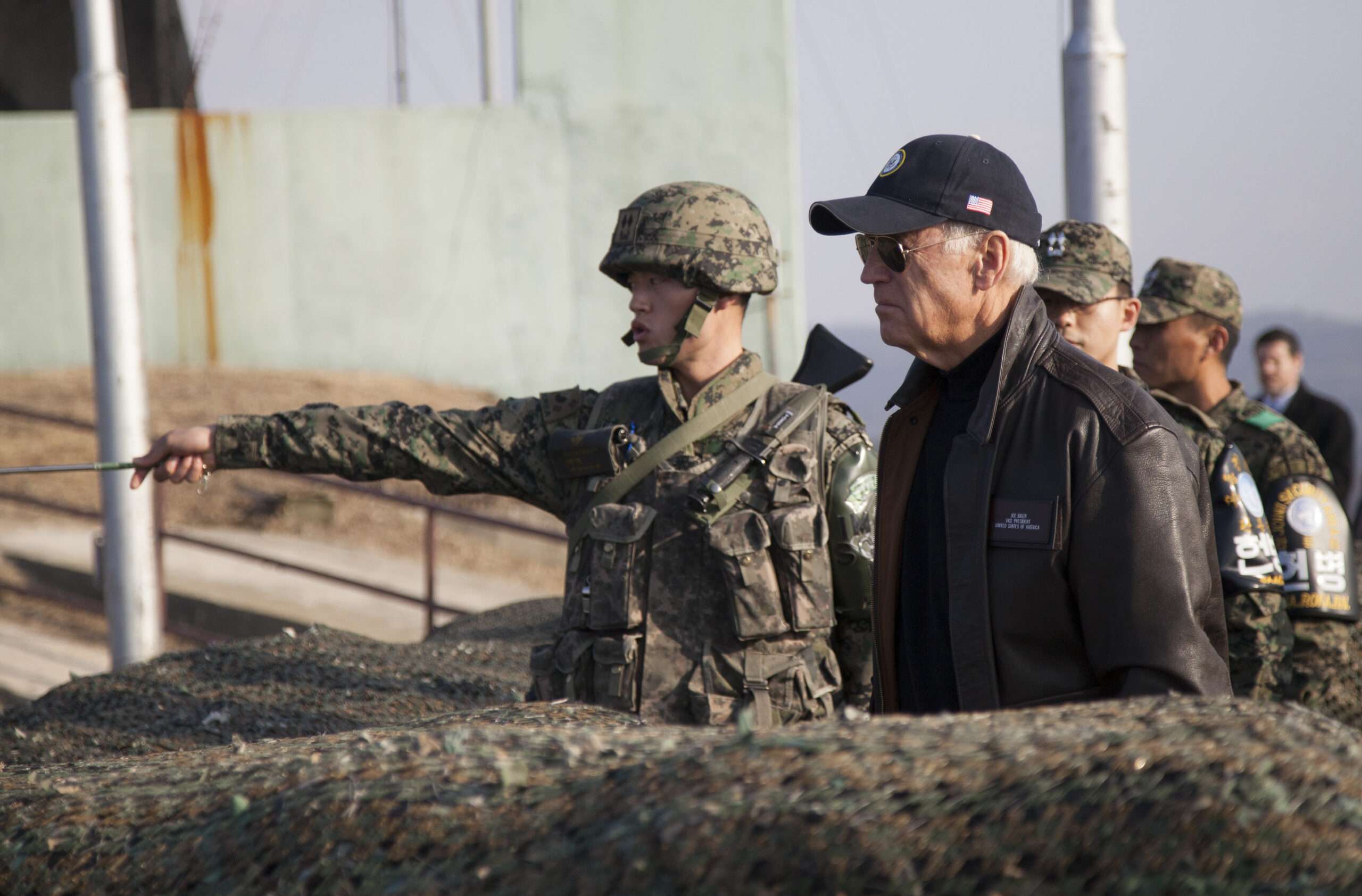During his time in office, former President Donald Trump faced intense international challenges, particularly with North Korea and Iran. Despite escalating tensions, Trump managed to avoid direct conflicts and even initiated communication with North Korea, a move that some Democrats criticized as being too soft on authoritarian regimes.
The Democratic Party’s 2024 platform reflects a desire to appear tougher on foreign policy issues, condemning Trump’s approach to Iran and North Korea. However, this stance mirrors the Republican Party’s criticisms of the Biden administration’s foreign policy decisions. Both parties seem to prioritize projecting strength over diplomatic solutions.
In 2017, the situation on the Korean peninsula was particularly tense, with North Korea conducting missile tests and the U.S. military preparing for potential conflict. Trump’s advisors, including H.R. McMaster and Sen. Lindsey Graham, advocated for military action against North Korea, raising fears of imminent war.
Despite these tensions, Trump’s meetings with North Korean leader Kim Jong Un in 2018 and 2019 helped ease the situation, albeit without securing a lasting agreement. The shift in approach from military threats to diplomatic engagement provided a much-needed respite from the brink of war.
The Democratic platform criticizes Trump for his dealings with North Korea, labeling them as embarrassing for the U.S. on the world stage. This sentiment is consistent with past Democratic rhetoric, which has been skeptical of diplomatic efforts with North Korea.
In contrast, Trump’s handling of Iran involved a more aggressive stance, including withdrawing from the nuclear agreement and implementing a “maximum pressure” campaign to destabilize the Iranian government. Tensions escalated, with Iran targeting U.S. bases and oil infrastructure in the region.
The Democratic platform criticizes Trump for his approach to Iran, accusing him of reckless decision-making and missed opportunities for retaliation. The platform highlights instances where Trump opted for restraint, such as calling off a planned bombing in response to Iran shooting down an American drone.
Despite these criticisms, the platform acknowledges the complexities of the situation, noting the risks of military escalation and the need for careful consideration in responding to provocations. It underscores the importance of diplomacy and de-escalation in resolving conflicts.
As the debate over foreign policy continues, there is a growing disconnect between party leaders’ hawkish stances and the public’s preference for diplomatic solutions. While politicians may prioritize tough rhetoric, the American people seem to value dialogue and peaceful resolutions over military confrontation.






